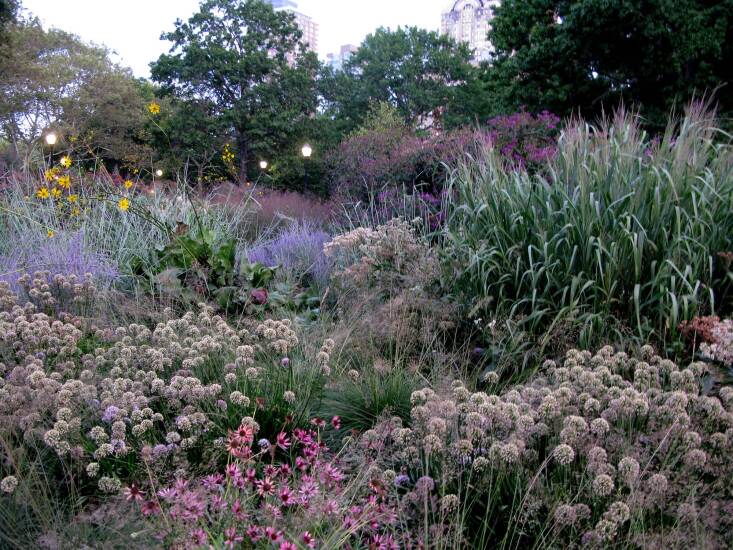This summer season has been scorching—actually scorching. Gardeners throughout the globe have lately skilled the 4 hottest days ever noticed, and by all accounts, that is the brand new regular. Late final 12 months the U.S.D.A. launched their new Plant Hardiness Zone Map, which shifted zones for a lot of places, together with the Midwest and Northeast, into the following hotter half zone. So, what’s a gardener to do? We reached out to a gaggle of backyard execs who’ve expertise in gardening in excessive warmth to ask them how we will plant and preserve our gardens to higher climate scorching summers.
Learn on for his or her recommendation for selecting vegetation, watering plantings, defending bushes, and extra.
N.B.: Featured {photograph} above courtesy of Refugia, from Backyard Go to: Refugia’s Quiet Revolution in Philadelphia’s Suburbs.
1. Cease planting.
After a very dry, scorching summer season in 2022, Claire Davis, an ecological backyard designer within the Hudson Valley vowed: No extra summer season planting. “I made a decision that I needed a deadline for plantings,” she says. “That super-dry, scorching summer season felt brutal for newly planted areas, and it was fairly depressing as a gardener attempting to deal with them.” As a bonus, Davis says that pushing pause on planting has given her a lot welcome respiratory area in her backyard upkeep calendar. As an alternative of giving into the impulse so as to add annuals for “a little bit colour” in midsummer, make detailed notes about when and the place you lacked blooms, so you may make a plan to fill the gaps come fall.
2. Favor native perennials.

While you do add vegetation within the fall (or subsequent spring), all of the specialists we spoke to positioned an emphasis on utilizing perennial vegetation native to your area as a result of they’re naturally tailored to the local weather there. “For essentially the most resilience within the warmth, use largely perennial native vegetation as an alternative of seasonal annuals, as a result of their root methods are extra in depth,” says Ginny Stibolt, the creator of Local weather-Clever Landscaping, who gardens in Florida. She notes that forgoing annuals can even end in much less disturbance of the soil, which helps construct up humus, in order that the soil stays moist even when it’s scorching.
















